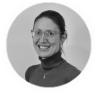Emerging Suppliers in the Global Arms Trade

Even though the volumes of arms exported by emerging suppliers are lower than those of the established exporters, they can nonetheless have a direct impact on international and regional security. The diversification in global arms transfers caused by the emergence of new suppliers therefore deserves scrutiny. Brazil, South Korea, Turkey and the United Arab Emirates are examples of emerging suppliers. Despite a continuous reliance on foreign technologies, they have managed to establish themselves in several niche categories of armaments or, in the case of South Korea, to widen the types of arms that they export. Exports of these emerging suppliers tend to go primarily to Africa, Asia and the Middle East, where most active armed conflicts are located, and also to Latin America. However, the drivers of the four countries’ arms exports differ: some have supplied with the intent to gain political influence, while others have primarily focused on the economic benefits.
I. Introduction
II. The increase in arms supplier diversification
III. From arms industry development to arms exports
IV. Assessing the risks of arms supplier diversification
V. Conclusions



